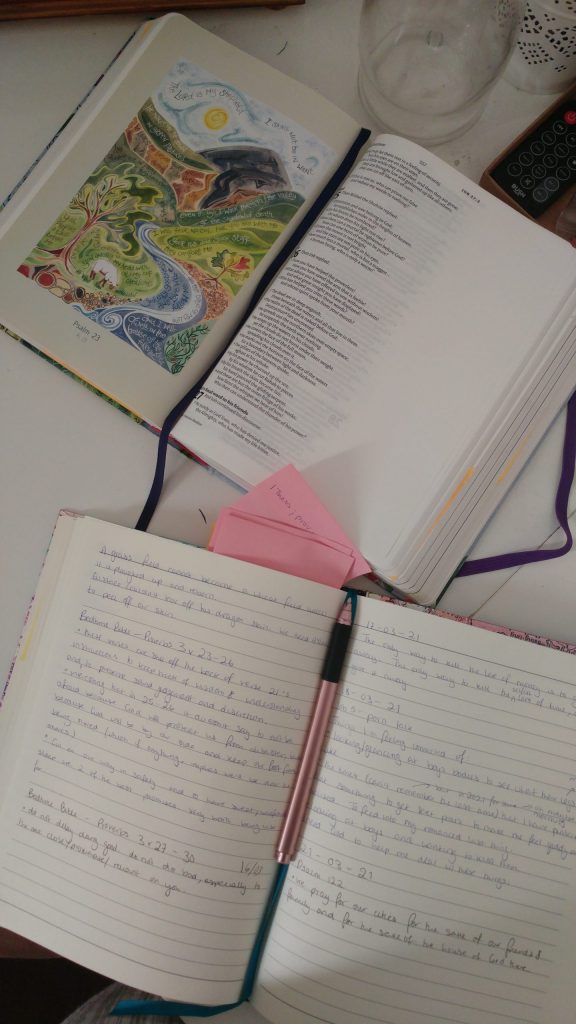About 18 months ago I listened to a really fascinating lecture given by Beth Darnell, on compassion-based health interventions, and the potential role of love and forgiveness in reducing pain. This was really interesting to me, so I thought I would write an article about it for my, then non-existent blog. I did not write that article. At periods of time since then I have sat down and tried to write up that idea, but try as I might, I cannot find the lecture, or anything similar to the lecture. So, far from being the highly professional ‘research paper’ that I had in my mind 18 months ago, this is just notes and thoughts. Maybe one day I’ll find that lecture and write this up in full.
When I was young, in our pre-GCSE homeschooling days, my mum bought a book written by Jeannie Fulbright that taught kids anatomy from a Christian perspective. We never got very far, but one thing has stuck with me for the 6 or so years that it has been. It was this:
In the Old Testament in the Bible, God gave the Israelites the Mosaic law. There were instructions about how to build things, how to raise animals, how to decide disputes and numerous other things. Part of this law was about health. Before science had taught human kind about disease, germs and illness God was protecting his people. Leviticus 13:3-4 is the example used in the science book where I found this concept. It says:
3 The priest is to examine the sore on the skin, and if the hair in the sore has turned white and the sore appears to be more than skin deep, it is a defiling skin disease. When the priest examines that person, he shall pronounce them ceremonially unclean. 4 If the shiny spot on the skin is white but does not appear to be more than skin deep and the hair in it has not turned white, the priest is to isolate the affected person for seven days.
Years later, science enlightened us about infection, contagion and quarantining. This is one of multiple examples of how the Law contained information that was ahead of scientific discovery. Before man discovered the science to explain why these things worked, God was protecting his people.
Whilst I was listening to the now elusive lecture it struck me that this was the same principle at work. What Darnell was saying about how holding onto a grudge can increase your perception of pain, but forgiveness can lessen it, was advocating for the very thing Jesus taught in the New Testament. Jesus said to love your enemies and to be quick to forgive, Jesus said that we should live in community with one another. These were the very things that I was being told could lessen the experience of physical pain.
‘How?’ You might ask. To which I will share my very introductory understanding of pain theories in psychology:
Prior to 1965, the leading ideas about how psychology related to pain were based off of Specificity theory. This theory, in simple terms, claims that a noxious (harmful, unpleasant, bad) event to the body will cause a message to be sent to the brain that then causes the brain to send messages to other parts of the body in reaction and will inform our consciousness that we are experiencing ‘pain.’ In this theory, the more noxious the event, the more pain you will perceive.
However, in 1965, a psychologist called Melzack, presented a model of pain perception called Gate Control Theory. This theory claims that before you are made conscious of your pain, the message passes through certain gates. Whether these gates are open or closed, dramatically influences how a person perceives their pain. Some examples of the factors that can close or open a gate are anger, attention and romantic love.
This has led to cognitive psychologists developing methods to reduce the perception of pain. One example is attention management techniques. This can be as simple as doing something enjoyable because by directing your attention elsewhere, you close that gate in your brain and your experience of pain reduces.
If romantic love can reduce the perception of pain, why not also the love of a friend, or of a parent, or a saviour God?
My overriding reason for sharing all of this, is how wonderful the wisdom of my God is. He created humankind, and he knows what makes us tick. All his instructions are for our good, but sometimes it takes many decades and lots of psychological research to begin to understand why his instructions work. This realisation makes me want to trust God more. Even when I can’t see the immediate reason why something is for my good, God knows better than me what is good for me.

